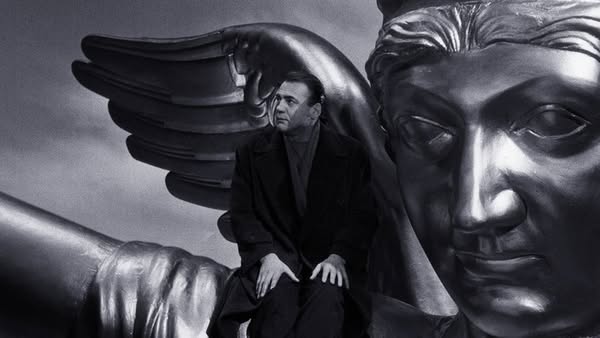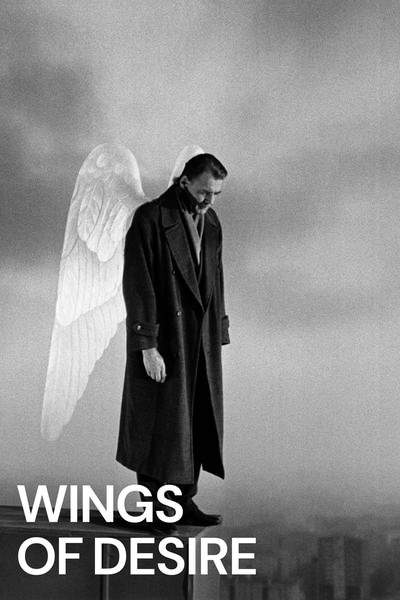Wings of Desire (1987)

“Wings of Desire,” directed by Wim Wenders and released in 1987, is a visually stunning and philosophical fantasy drama that explores the nature of existence, love, and the human experience. Set in Berlin before the fall of the Wall, the film follows two angels, Damiel (Bruno Ganz) and Cassiel (Otto Sander), who silently observe the lives of the city’s inhabitants.
The angels can hear people’s thoughts and provide comfort but cannot physically interact with the world. Damiel, however, becomes increasingly enamored with the idea of being human after encountering a trapeze artist named Marion (Solveig Dommartin). Her vibrancy and passion for life awaken his longing for human experiences, love, and mortality.

Wenders’ direction is characterized by its poetic cinematography, often capturing Berlin’s stark beauty in black-and-white, contrasted with vivid colors when depicting human experiences. The film’s dreamlike quality is enhanced by its use of slow motion and ethereal sound design, immersing viewers in the angels’ perspective.

The screenplay, co-written by Wenders and Peter Handke, is rich with philosophical dialogue and contemplative reflections on life, art, and the passage of time. The film’s exploration of existential themes resonates deeply, making it a profound meditation on the human condition.
“Wings of Desire” received critical acclaim, winning the Best Director award at the Cannes Film Festival and becoming a cult classic. It has influenced numerous filmmakers and remains a significant work in the realm of art-house cinema.

In conclusion, “Wings of Desire” is a beautifully crafted film that blends fantasy and reality, inviting viewers to reflect on love, longing, and the essence of being human. Its lyrical storytelling and stunning visuals make it a landmark in cinematic history.











